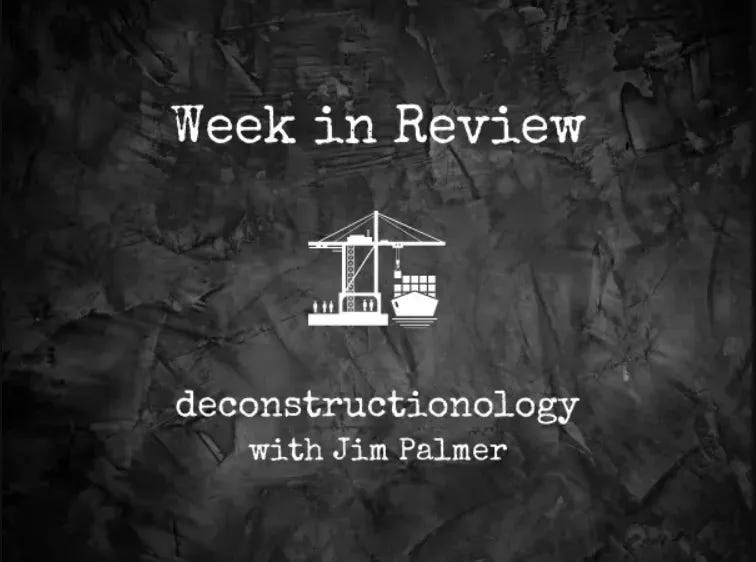Week in Review (September 23-29)
The Churchianity Problem, Charles Darwin Lies, Moving to an Island, and the Antidote for Everything
Next week we are loading up our trailer and two dogs, and off for a six-month adventure, living on an island of British Columbia. Thetis Island, population 350, is two miles wide and three miles long. Driving to Seattle and a couple ferry rides will get us there. We will be renting a small furnished home on the island from a retired couple who will be t…
Keep reading with a 7-day free trial
Subscribe to Deconstructionology with Jim Palmer to keep reading this post and get 7 days of free access to the full post archives.





